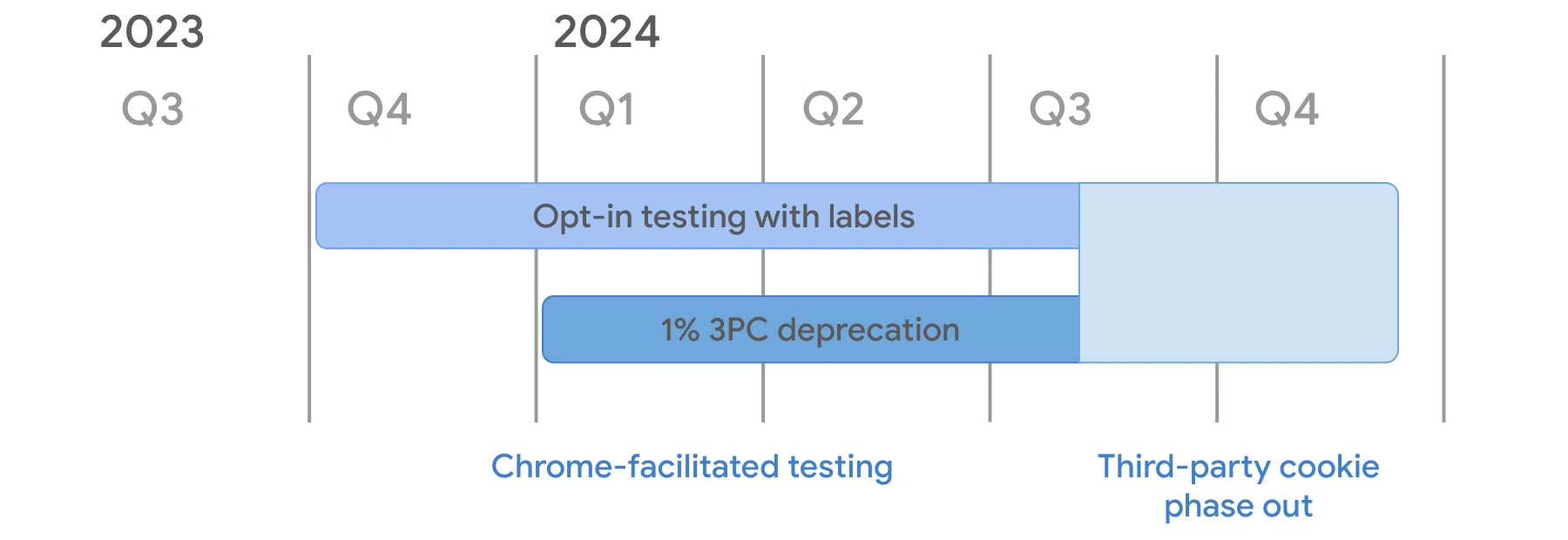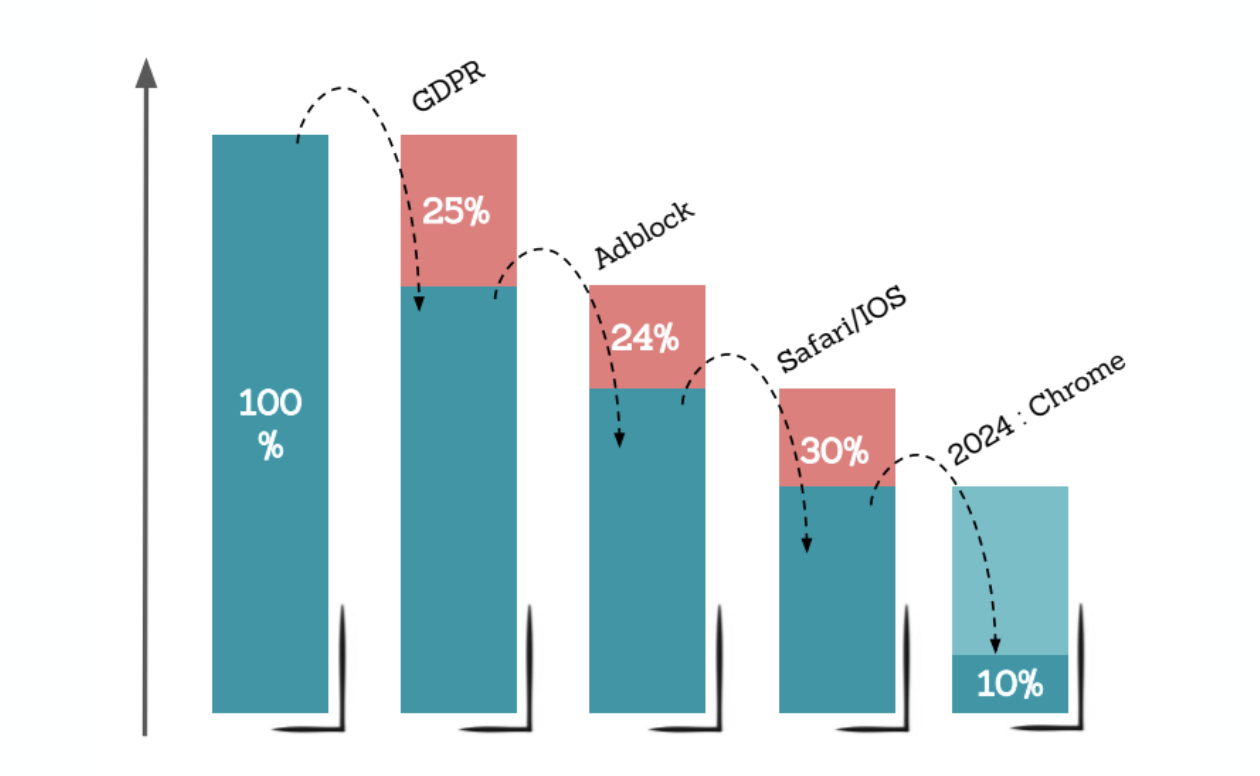
What Google's notice on third-party cookies changes
3min • Last updated on Sep 24, 2024
In a blog post published on July 22, 2024, Google announced that it would not be removing third-party cookies from its Chrome browser. Instead, Anthony Chavez, Vice President in charge of the Privacy Sandbox solution, announced that they intend to implement “a new experience that will allow users to make an informed choice, applying to all web browsing.”
What should you take away from this announcement and what changes (or doesn't change) as a result for your marketing strategies?
Twists at Google
The saga of the end of third-party cookies began more than 4 years ago at Google Chrome. Aware of the growing concerns about privacy and data protection, Google had indeed announced in 2020 that it wanted to remove third-party cookies from its browser as quickly as possible.
After many twists and delays, 2024 was supposed to mark the end of this saga. As of January 4, third-party cookies were removed from the browser for 1% of users (still representing 30 million people). This first step was indeed to conduct a large-scale test for Google's alternative solution, the Privacy Sandbox.

In April 2024, Google acknowledged that its teams were encountering challenges related to reconciling divergent feedback from the industry, the Competition and Markets Authority (CMA), and developers involved in the Privacy Sandbox project. These difficulties did not seem to threaten the end of third-party cookies, with Google only postponing it to the first quarter of 2025.

However, Google has just announced (July 2024) that they will ultimately not remove these famous cookies, instead proposing an experience that will allow users to make an informed choice applicable to all web browsing. This choice can be changed at any time.
Google has not yet announced a date for the deployment of these changes. To date, it is still not possible to obtain valid consent “by purpose” at the browser level. Google will need to collaborate with regulatory authorities to comply with ePrivacy and GDPR requirements.
However, the change could come sooner than expected, given the speed of updates to the Chrome browser.
What does Google’s announcement actually change?
No more removal of third-party cookies = no more problems? Unfortunately, it’s not that simple...
⚠️ This announcement should not change your plans. The transition to “cookieless” solutions remains a priority for all companies, for various reasons:
The end of third-party cookies is already effective on Firefox and Safari, thus excluding 30% of global traffic.
For Chrome users (about 60%), CNIL and GDPR regulations still require informed consent for third-party cookies on all websites. This excludes the possibility of tracking the behavior of 30% to 50% of users.
Furthermore, data collection online is also threatened by the growing use of ad blockers (preventing the triggering of tracking scripts) by users.

The gradual end of 3rd party cookies
The announced changes on Google's side will necessarily impact consent. It is difficult to estimate the impact at present, but it should resemble the case of Apple's Intelligent Tracking Prevention. The opt-in rate should therefore be around 30%.
How to adapt to this new ecosystem?
For all the reasons mentioned above, third-party cookies do not represent a sustainable solution for digital marketing. Thus, despite Google’s announcement, we recommend turning to “cookieless” alternatives as quickly as possible.
What are our recommendations?
Collect as much high-quality first-party data as possible, notably by:
Consolidating server-side tracking and implementing conversion APIs
Launching programs to revamp consent collection to exploit collected data
Centralize collected first-party data in a single source of truth (ideally, a data warehouse)
Leverage first-party data in marketing tools by:
Sending offline and online conversions to advertising platforms to provide a complete view of the customer journey
Using first-party audiences to ensure quality targeting
Enriching marketing automation tools / CRMs with more first-party data
Strengthen measurement and modeling methods, particularly the Marketing Mix Modeling.
A Customer Data Platform can help you implement all these actions.
In summary
Despite Google’s announcement to maintain third-party cookies in Chrome, marketers should continue to prioritize first-party data strategies.
Indeed, first-party data allows for comprehensive customer journey tracking and thus offers precise targeting and full compliance with privacy regulations. By using your first-party data, you can both decrease your CAC and increase your customers' LTV.
If you want to learn more about the impact of restrictions on third-party cookies, feel free to contact us!
















